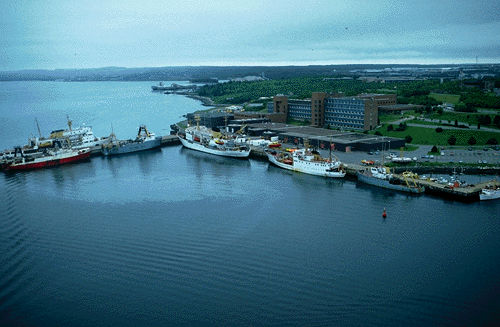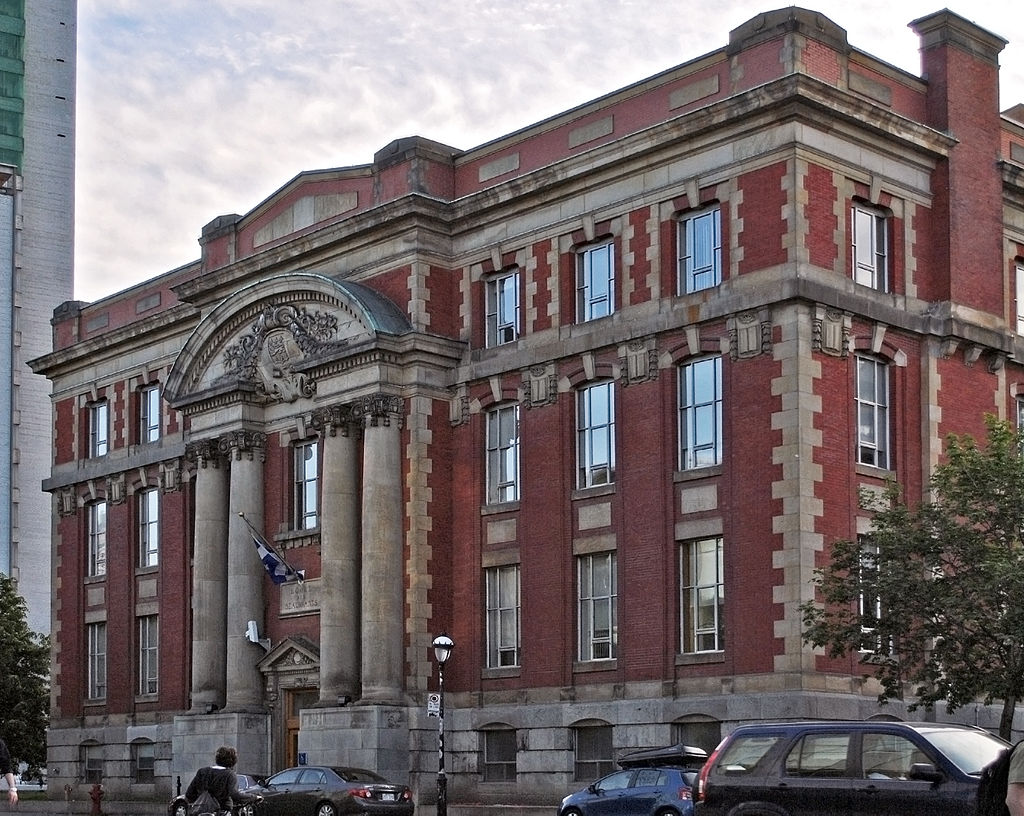Browse "Things"
-
Article
Oceanography
From descriptive beginnings as the geography of the sea, oceanography has matured into a quantitative and multidisciplinary science bringing together experts from many basic fields.
"https://d2ttikhf7xbzbs.cloudfront.net/media/media/c584d662-8432-4be5-8f12-452cab3d3a57.jpg" // resources/views/front/categories/view.blade.php
https://d2ttikhf7xbzbs.cloudfront.net/media/media/c584d662-8432-4be5-8f12-452cab3d3a57.jpg
-
Article
October Crisis
The October Crisis refers to a chain of events that took place in Quebec in the fall of 1970. The crisis was the culmination of a long series of terrorist attacks perpetrated by the Front de libération du Québec (FLQ), a militant Quebec independence movement, between 1963 and 1970. On 5 October 1970, the FLQ kidnapped British trade commissioner James Cross in Montreal. Within the next two weeks, FLQ members also kidnapped and killed Quebec Minister of Immigration and Minister of Labour Pierre Laporte. Quebec premier Robert Bourassa and Montreal mayor Jean Drapeau called for federal help to deal with the crisis. In response, Prime Minister Pierre Trudeau deployed the Armed Forces and invoked the War Measures Act — the only time it has been applied during peacetime in Canadian history.
"https://d2ttikhf7xbzbs.cloudfront.net/media/media/c8a1d56b-60f5-40b0-86e2-3ce31bc3e7b0.jpg" // resources/views/front/categories/view.blade.php
https://d2ttikhf7xbzbs.cloudfront.net/media/media/c8a1d56b-60f5-40b0-86e2-3ce31bc3e7b0.jpg
-
Article
October Crisis (Plain-Language Summary)
The October Crisis happened in the fall of 1970. It was sparked by the Front de liberation du Québec (FLQ). The FLQ used terrorist tactics to try and make Quebec independent from Canada. On 5 October, the FLQ kidnapped James Cross, a British trade commissioner. The FLQ also kidnapped Quebec cabinet minister Pierre Laporte. Prime Minister Pierre Trudeau invoked the War Measures Act. The Act had never been used before during peacetime. It suspended civil liberties and led to hundreds of arrests. Laporte was murdered and found on 17 October. Cross was freed on 3 December. The crisis ended on 28 December, when Laporte’s killers were captured. (This article is a plain-language summary of the October Crisis. If you are interested in reading about this topic in more depth, please see the full-length entry.)
"https://d2ttikhf7xbzbs.cloudfront.net/media/new_article_images/PA-129838-curious-children.jpg" // resources/views/front/categories/view.blade.php
https://d2ttikhf7xbzbs.cloudfront.net/media/new_article_images/PA-129838-curious-children.jpg
-
Article
Octopus
Octopus is the common name for all 8-armed cephalopod molluscs; it more properly refers to the largest genus in order Octopoda (over 100 species).
"https://development.thecanadianencyclopedia.ca/images/tce_placeholder.jpg?v=e9dca980c9bdb3aa11e832e7ea94f5d9" // resources/views/front/categories/view.blade.php
https://development.thecanadianencyclopedia.ca/images/tce_placeholder.jpg?v=e9dca980c9bdb3aa11e832e7ea94f5d9
-
Article
Office Automation
Office Automation is a general term that includes a wide range of applications of computer, communication and information technologies in office environments. Though automation is in a continual state of flux, the size of the market is huge, with annual investments measured in billions of dollars.
"https://development.thecanadianencyclopedia.ca/images/tce_placeholder.jpg?v=e9dca980c9bdb3aa11e832e7ea94f5d9" // resources/views/front/categories/view.blade.php
https://development.thecanadianencyclopedia.ca/images/tce_placeholder.jpg?v=e9dca980c9bdb3aa11e832e7ea94f5d9
-
Article
Office québécois de la langue française
Created in 1961, the Office québécois de la langue française is a Québec public institution responsible for linguistic officialization, terminological recommendations and the francization of the language of work in both the public and the private sectors. Since 1977, it has been responsible for ensuring that the Charte de la langue française is complied with in Québec, and for monitoring the province’s language situation.
"https://d2ttikhf7xbzbs.cloudfront.net/media/media/f1415842-0d04-4cea-b4a4-e8f7820fc5a9.jpg" // resources/views/front/categories/view.blade.php
https://d2ttikhf7xbzbs.cloudfront.net/media/media/f1415842-0d04-4cea-b4a4-e8f7820fc5a9.jpg
-
Article
Chief Electoral Officer
The Chief Electoral Officer is an officer of Parliament who oversees Elections Canada, the non-partisan agency that administers Canada’s federal elections and referendums.
"https://d2ttikhf7xbzbs.cloudfront.net/media/media/3fcad776-7e8d-47da-86aa-c77b5a9d2744.jpg" // resources/views/front/categories/view.blade.php
https://d2ttikhf7xbzbs.cloudfront.net/media/media/3fcad776-7e8d-47da-86aa-c77b5a9d2744.jpg
-
Article
Official Language Act (New Brunswick)
New Brunswick, the province with the highest level of linguistic duality in Canada, adopted the Official Languages of New Brunswick Act (OLNBA) in 1969, a few months before the federal government enacted its own Official Languages Act. New Brunswick’s recognition of two linguistic communities (1981), mechanisms for enforcement of the law and redress for infractions (2002), and regulations on bilingual commercial signage (2009) have been the boldest measures in support of bilingualism of any province in the country. Francophones in New Brunswick represented 32.4 per cent of the population in 2016.
"https://d2ttikhf7xbzbs.cloudfront.net/media/media/f2da98cd-44e1-4a6f-85b5-0fc3c66f8ebe.jpg" // resources/views/front/categories/view.blade.php
https://d2ttikhf7xbzbs.cloudfront.net/media/media/f2da98cd-44e1-4a6f-85b5-0fc3c66f8ebe.jpg
-
Article
Official Languages Act (1969)
The Official Languages Act (1969) is the federal statute that made English and French the official languages of Canada. It requires all federal institutions to provide services in English or French on request. The Act was passed on the recommendation of the Royal Commission on Bilingualism and Biculturalism (established by Prime Minister Lester B. Pearson) and came into force on 7 September 1969. It created the Office of the Commissioner of Official Languages, which oversees its implementation.
"https://d2ttikhf7xbzbs.cloudfront.net/media/Twitter_Cards/OLA 1.png" // resources/views/front/categories/view.blade.php
https://d2ttikhf7xbzbs.cloudfront.net/media/Twitter_Cards/OLA 1.png
-
Article
Official Languages Act (1988)
The Official Languages Act (1988) consolidates all of the changes made to the Official Languages Act of 1969, providing more detail and making them clearer within a new legislative framework. This version highlights the responsibilities of federal institutions with respect to the official languages (see also Language Policy in Canada). This is the full-length entry about the Official Languages Act of 1988. For a plain language summary, please see The Official Languages Act (1988) (Plain Language Summary).
"https://development.thecanadianencyclopedia.ca/images/tce_placeholder.jpg?v=e9dca980c9bdb3aa11e832e7ea94f5d9" // resources/views/front/categories/view.blade.php
https://development.thecanadianencyclopedia.ca/images/tce_placeholder.jpg?v=e9dca980c9bdb3aa11e832e7ea94f5d9
-
Article
Official Secrets Act
Official Secrets Act, the most important statute relating to national security, is designed to prohibit and control access to and the disclosure of sensitive government information; offences cover espionage and leakage of government information.
"https://d2ttikhf7xbzbs.cloudfront.net/media/media/ef877228-646a-42e0-8096-b939feb24100.jpg" // resources/views/front/categories/view.blade.php
https://d2ttikhf7xbzbs.cloudfront.net/media/media/ef877228-646a-42e0-8096-b939feb24100.jpg
-
Article
Offshore Mineral Rights Reference
The Supreme Court of Canada, in a decision about the ownership of seabed mineral rights off BC and on the legislative jurisdiction over these rights, decided in 1967 that Parliament, not the BC legislature, owned the territorial seabed adjacent to that province and enjoyed exclusive legislative jurisdiction by virtue of the Constitution Act, 1867 (s91.1A), ie, Parliament's residuary power. Rights in the territorial sea derive from international law and Canada is the sovereign state recognized...
"https://development.thecanadianencyclopedia.ca/images/tce_placeholder.jpg?v=e9dca980c9bdb3aa11e832e7ea94f5d9" // resources/views/front/categories/view.blade.php
https://development.thecanadianencyclopedia.ca/images/tce_placeholder.jpg?v=e9dca980c9bdb3aa11e832e7ea94f5d9
-
Macleans
OFFSHORE PRESSURE: What Newfoundland wants - and why Danny Williams may get it yet.
The last time Williams met with federal officials, on Dec. 22 in Winnipeg, he ended up storming home and ordering the Canadian flag taken down from provincial government buildings.This article was originally published in Maclean's Magazine on January 31, 2005
"https://d2ttikhf7xbzbs.cloudfront.net/media/media/eee3ae29-ece8-4e05-8734-c9161cf6442f.jpg" // resources/views/front/categories/view.blade.php
https://d2ttikhf7xbzbs.cloudfront.net/media/media/eee3ae29-ece8-4e05-8734-c9161cf6442f.jpg
-
Article
Oil, Chemical and Atomic Workers International Union v Imperial Oil Limited et al
In 1961 the BC Legislature prohibited trade unions from using membership fees paid under a collective agreement checkoff provision for political purposes.
"https://development.thecanadianencyclopedia.ca/images/tce_placeholder.jpg?v=e9dca980c9bdb3aa11e832e7ea94f5d9" // resources/views/front/categories/view.blade.php
https://development.thecanadianencyclopedia.ca/images/tce_placeholder.jpg?v=e9dca980c9bdb3aa11e832e7ea94f5d9
-
Article
Oil City
Oil City, Alberta, is the site of western Canada's first producing oil well, known previously as Original Discovery No 1, located in WATERTON LAKES NATIONAL PARK. Kutenai had used oil from seepage pools along Cameron Creek and early settlers used it to lubricate wagons.
"https://development.thecanadianencyclopedia.ca/images/tce_placeholder.jpg?v=e9dca980c9bdb3aa11e832e7ea94f5d9" // resources/views/front/categories/view.blade.php
https://development.thecanadianencyclopedia.ca/images/tce_placeholder.jpg?v=e9dca980c9bdb3aa11e832e7ea94f5d9
